Archaeologists excavating Col William Light’s old home stunned by their find
Archaeologists digging up pieces of SA history that haven’t seen sunlight for nearly 100 years went from “we don’t think there’s much here” to the complete opposite.
Lifestyle
Don't miss out on the headlines from Lifestyle. Followed categories will be added to My News.
Almost a century after it was demolished to make way for a warehouse, the ruins of the home of Colonel William Light are seeing the light of day.
Archaeologists hit paydirt earlier this week, uncovering the first bricks from Theberton Cottage on the site of what was until recently the West End brewery.
In recent days the cottage’s well, dairy and garden have also been discovered, providing a unique insight in the final months of the gifted surveyor who laid out the plans for Adelaide.
The site of the cottage has always been known – although it turned out to be 5m further south than thought – but because it was entombed under the warehouse’s concrete floor nobody was quite sure how well the ruins had been preserved.
The demolition of the brewery provided a unique opportunity to examine the site for the first time since 1926, and lead archaeologist Guadalupe Cincunegui said she was amazed by what she had found.
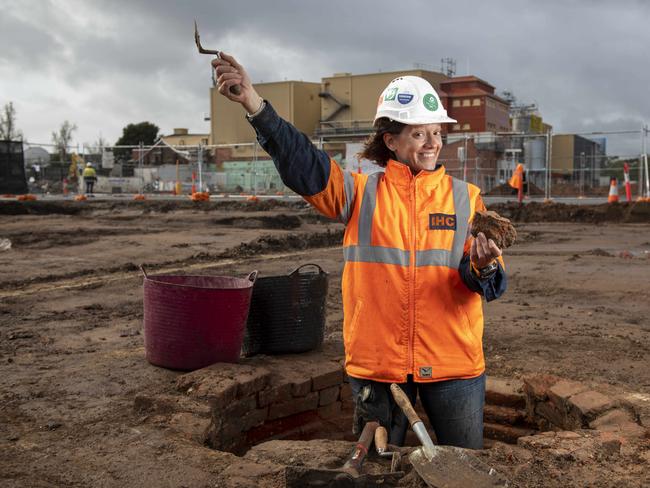
Bricks imprinted with the thumbprint of the maker – the first Ms Cincunegui has found in South Australia – pieces of pottery and the location of an underground cellar likely to reveal more treasures are among the highlights, but it’s the home’s unique garden that has her particularly excited.
“It’s a Mediterranean garden, and I’ve never seen one this old in South Australia,” Ms Cincunegui, Independent Heritage Consultants managing director said.
“We know that Col Light wrote about his fine Mediterranean garden and his fruit trees, so we know that it was one of the first things he established. Who knows, maybe when he was living in the dairy he was establishing his garden.”
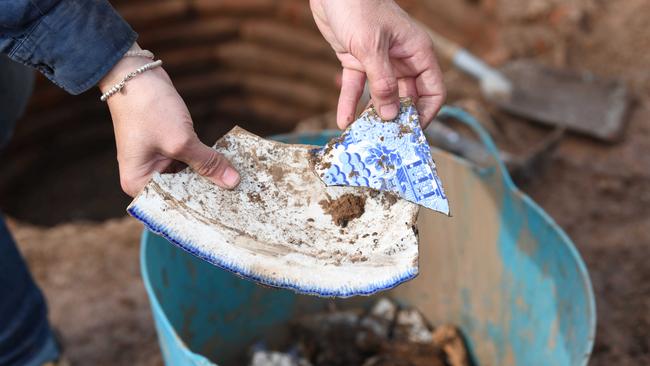
Col Light famously lived in the dairy after his original hut, on the site of what is now the Royal Adelaide Hospital, burned down. He shacked up in the outbuilding until the cottage was finished.
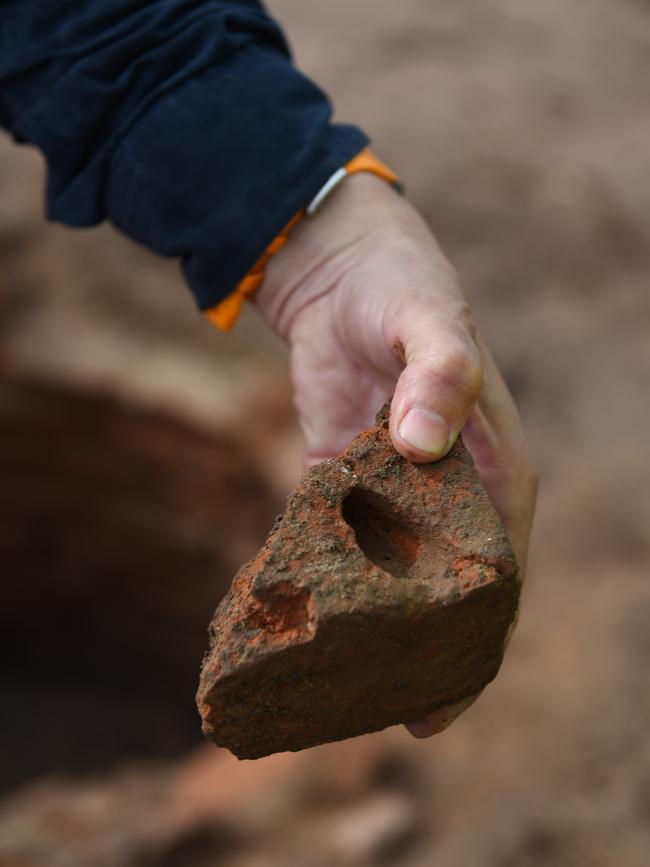
Ms Cincunegui said soil samples from the garden area would be analysed for traces of pollen, which should reveal the plants Col Light grew.
She said it was an exciting moment when she and her team began exposing lines of obviously old bricks that aligned perfectly with plans of the cottage.
“Then we slowly teased that out and we went from ‘I don’t think there’s much here’ to ‘we’ve found the whole house and garden’,” Ms Cincunegui said.
Equally excited by the developments was Keith Conlon, chair of the South Australian Heritage Council and lifelong scholar of William Light.
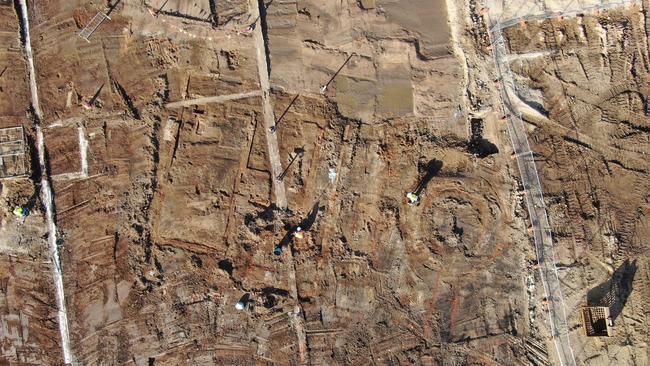
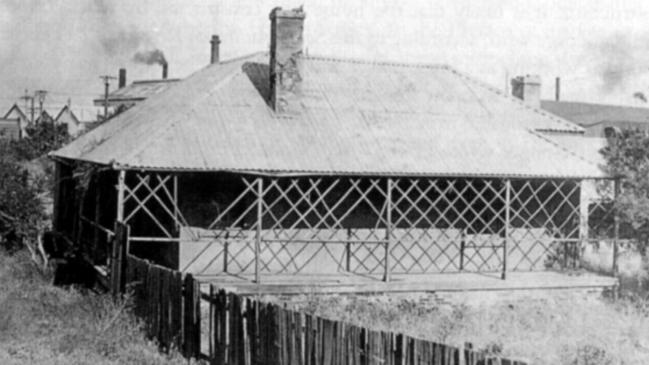
Mr Conlon said the Theberton Cottage, which Col Light named after Theberton in Suffolk and lived in for only a few months before he died in 1839, was of major significance to the history of South Australia. (The State Library says spelling of the name was changed to Thebarton after 1840 because of a typographical error).
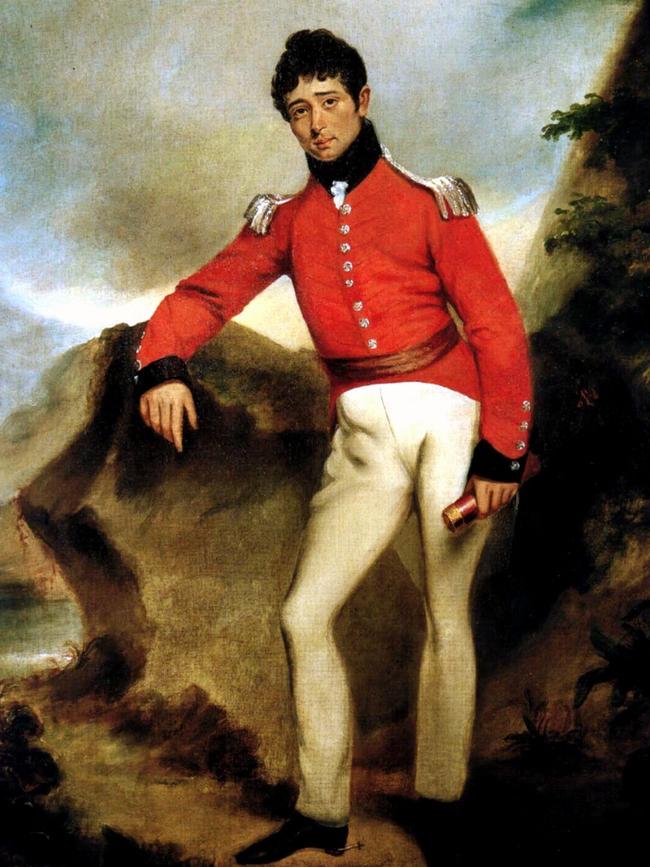
“This is really exciting,” he said. “When we were doing the work with the Heritage Council about what might be there it was always ‘might’.
“But I was always reasonably optimistic that something good would be found because the shed was a bit of a gift in a way – a dirty great big shed covering the area is better that multistorey buildings with pylons going into the earth.
“So we always thought there was the chance of something being under there, but to see how much Guadalupe and her team have been able to find – and to look forward to finding more – it’s fantastic.”
A spokesman for Lion, the owner of the site, said: “This appears to be a hugely significant find and will be very exciting for many South Australians.
“We always knew there was the possibility of historically significant discoveries in relation to Colonel Light at the site, which is why we engaged specialist archaeologists to undertake this important work.
“The dig will continue over the coming days and weeks, and it will take some time to work through the items with Heritage SA.
“Given the significance of the discovery, the archaeologists and team supporting the dig will work with Heritage SA to ensure these items are preserved in the most appropriate way, while work continues to prepare the site for sale.”





